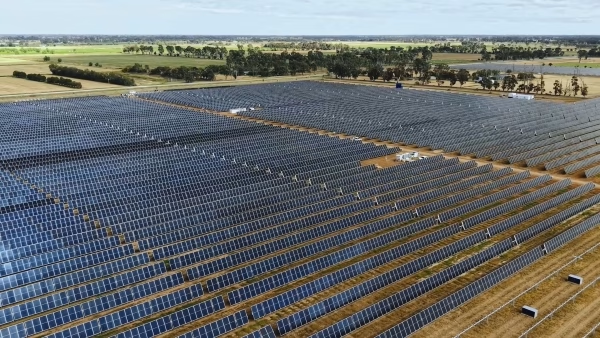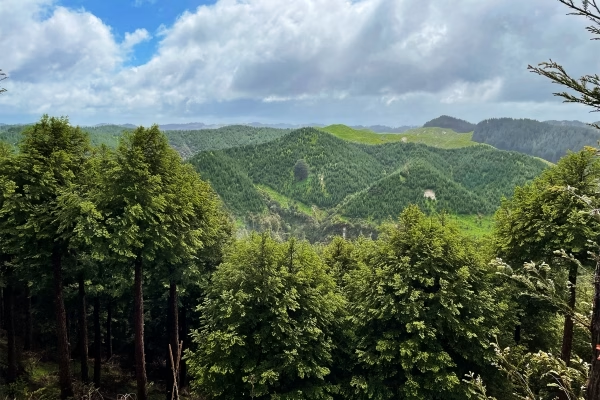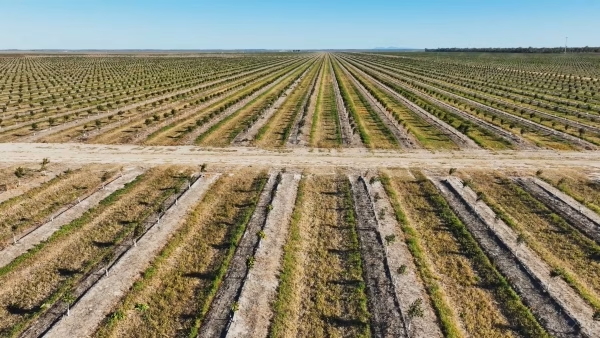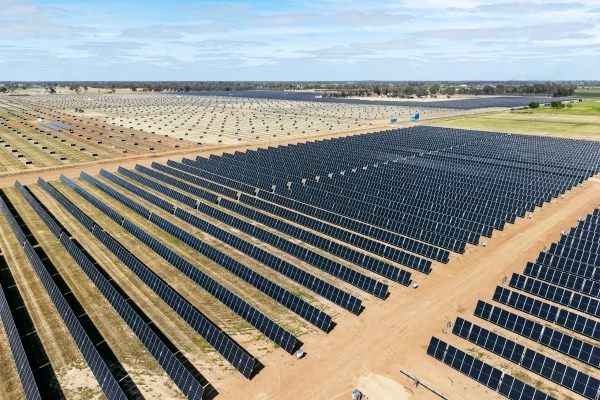Apple has announced a major expansion of its renewable energy and nature conservation initiatives across Australia and New Zealand with an 80 MW solar project under construction in Victoria and the restoration of 8,600 hectares of forestland in NZ. The latter also includes 3,000 hectares of native forest across multiple sites in the North and South Islands. Apple targets carbon neutrality across its full footprint by 2030, as its 80 MW solar farm in Lancaster is expected to produce over 1 million MWh of clean electricity annually before then. The company’s Restore Fund is spearheading the conservation efforts in New Zealand and nearby islands.
Project Overview
Apple’s 80 MW Solar Farm in Lancaster, Victoria
Apple is in a long-term agreement with European Energy for the 80 MW solar project currently under construction in Lancaster. The facility will start generating power in 2026, with target of over 1 million MWh of clean electricity production annually before 2030.
Conservation Efforts in New Zealand and Neighboring Islands
Through its Restore Fund, Apple and Climate Asset Management are leading the conservation and restoration project. It will cover 8,600 hectares of forestland, including 3,000 hectares of native forest. The land will be managed under Forest Stewardship Council. Apple’s main target is increasing biodiversity, storing carbon and of course, returns through sustainable forest assets. New Zealand’s Fast-track Approval Act also recently reached a milestone after it approved its first renewable energy project, the Tekapo Power Scheme.
Apple Renewable Energy and Conservation Efforts in Australia and New Zealand: Factsheet
Partners:
- Australia: European Energy as solar project developer.
- New Zealand: Climate Asset Management – a JV between HSBC Asset Management and Pollination. The JV works via the Apple’s Restore Fund.
Project Components:
Lancaster Solar Farm in Victoria
Capacity: 80 MW
Output: More than 1 million MWh of renewable electricity annually.
Expected Completion: 2026
Offtake: Apple’s Australian operations, including data centers, offices and retail.
Developer: European Energy
Project Type: Utility-scale solar farm under long-term PPA.

Restore Fund Conservation Project in New Zealand
Area: 8,600 hectares. Also includes 3,000 hectares of native forest.
Location: Sites across the North and South Islands.
Focus: Reforestation, biodiversity restoration, and carbon sequestration.
Standards: Forest Stewardship Council (FSC) as certified management.
Investment Source: Apple and Climate Asset Management Restore Fund.
Target: Carbon-removal credits and sustainable forest returns.

Apple Renewable Energy and Conservation Efforts in Australia and New Zealand: Timeline
2021-2023: Apple begins securing renewable energy supply in Australia to match retail and corporate operations.
April 2021: Restore Fund launched. This is in partnership with Conservation International and Goldman Sachs. The fund is also Apple’s first major nature-based carbon program.
2022-2023: Restore Fund expands to Asia-Pacific projects.
May 2023: Second Restore Fund launched with Climate Asset Management to extend reach to new regions. This also includes scoping for Australia and New Zealand.
2024: European Energy and Apple plan for the 80 MW solar farm in Victoria, Australia.
February 2025: Preliminary environmental and community studies begin for the Lancaster Solar Farm.
Mid-2025: Site development and land preparation underway. Engineering contracts also finalized.
November 2025: Apple expands renewable energy and conservation efforts in Australia and New Zealand.
2026: Lancaster Solar Farm to be commissioned and connected to the grid.
2030: Apple expects to achieve carbon neutrality across entire value chain.

Outlook on Apple’s Renewable Energy and Conservation Efforts in Australia and New Zealand
The Australian solar investment enhances Apple’s energy supply in a key APAC region. The New Zealand forest conservation also signals commitment to ecosystems and carbon sequestration markets.
Additionally, the concerted effort could also position Apple as a leading corporate actor in combining upstream clean energy with nature conservation in the Asia-Pacific. This will be up against major tech rivals like Microsoft who is also in a PPA with FRV’s 300 MW Walla Walla solar farm in NSW to power its new data centers build-out. The Australian Dept. of Defense is also partnering with Google for a new data center on Christmas Island in the Indian Ocean. The outpost island is notable for its annual red crab migration.

Leave a Reply